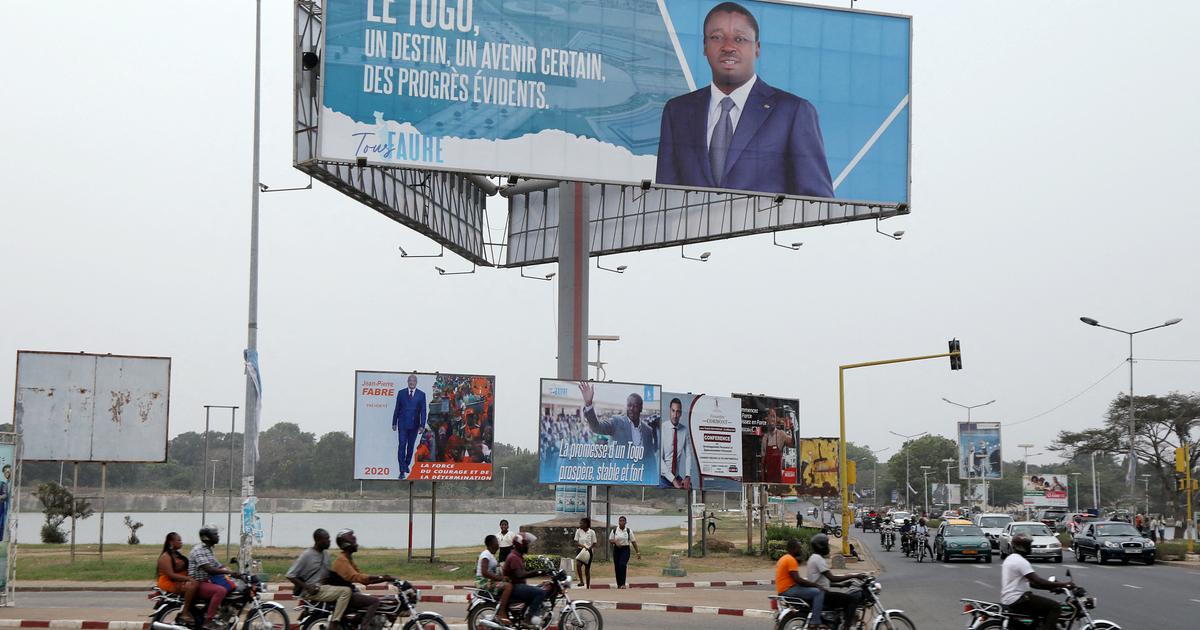Clara Campoamor, as she has done so many other times, appeared again in the Congress of Deputies this Tuesday.
“In January 1932, in this same Chamber, the abolition of prostitution was raised, speakers of different ideologies said that prostitution is incompatible with human dignity and that it represents a bankruptcy for the ethics of men and women.
True freedom is in being owners, the only ones, of your own life”.
This is how Adriana Lastra remembered her, the deputy secretary of the PSOE and in charge of defending in Parliament the bill to prohibit pimping in all its forms.
The lower house gave the green light at the beginning of that path, but before that there was debate, recriminations, clashes and speeches charged with the background that this question supposes, which no party has ever really entered.
Until now.
01:11
Adriana Lastra: "In a democracy, women are neither bought nor sold"
The deputy secretary general of the PSOE, Adriana Lastra during her speech in the plenary session of Congress.Photo: ZIPI ARAGON (EFE) |
Video: EFE
In this legislature, the coalition government has two comprehensive laws pending to address pimping, trafficking for the purpose of sexual exploitation and, even with a heated substantive discussion, prostitution.
One, the closest to entering into force, is the so-called law of the
only yes is yes
—which only has its way through the Senate—, which will recognize victims of trafficking as victims of sexist violence and will establish the services of comprehensive assistance as specific resources to provide a concrete response to this problem.
Another, the Comprehensive Law against Trafficking —in the hands of the Ministry of Justice since last January—, which according to the Ministry of Equality will have the victims, their circumstances, and above all, the tools to protect them at the center.
Prevention, prosecution of crime, protection of victims and their reparation and reintegration, are the axes on which Irene Montero's department often insists.
"It is time for the State to assume its commitments to human rights, comply with the principle of due diligence and protect all women victims of trafficking and sexual exploitation, regardless of their administrative status," the minister alluded to a month ago in a of the meetings of the Social Forum against Trafficking, on the irregular situation of many of these victims, coming from other countries.
And to both, now is added that bill of the socialists that proposes criminally prosecute pimping, prostitutes, the owners of the premises where it occurs (the so-called locative third party), and protect the victims with a reform of the Penal Code.
The next step in this regulation will be the constitution of a paper to study the text —something for which there is no stipulated deadline and will depend on the will of the parties—, and for each parliamentary group to present its amendments.
From there will come the text that will go back to the plenary session of Congress.
The PSOE hopes that this will happen before the end of the year, but it is impossible to know what will happen in the coming months, above all, because this proposal has once again sharpened the differences that exist in Parliament not over pimping or trafficking for of sexual exploitation, but on account of prostitution.
While the two majority groups, PSOE and PP, agree that the ultimate goal should be the abolition of prostitution, United We Can split into the different factions that comprise it.
There are those who opt for abolitionism, as the part of the Government declares, and those who opt for regulation —as was verified this Tuesday with the broken vote for the socialist proposal—.
It is in the latter the idea, the regulation, where the minority groups that supported the investiture of the coalition government and adds Citizens come together.
Because, they defend, a difference must be made between sexual exploitation and women who "freely and voluntarily practice prostitution."
And so they argued again this Tuesday during the debate Mireia Vehí (CUP), Isabel Pozueta (EH Bildu), Agirretxea (PNV), or Sara Giménez (Citizens).
"There are no grays"
For those who work every day with prostituted women, with victims of trafficking for sexual exploitation, and sometimes with their families, "there is no room for gray."
On the phone, says Mabel Lozano, a writer and film director who has dedicated most of her career to denouncing, documenting and fighting against trafficking.
She does not escape her notice, and reminds her, that in almost half a century of democracy, no party has really been willing to put an end to "a form of violence against women that is indescribable, that involves looking at and trading with them as with a piece of meat".
The PSOE, she says, "has had legislatures alone and has done nothing";
now, she adds, “it is shooting the biggest, but it takes political will from all groups and consensus for it to really go ahead.”
With what is currently included in Spanish legislation, Lozano only has one word: “Impunity.
There is total and absolute impunity for the pimps.”
Lastra, the deputy secretary of the PSOE, has recalled during the defense of her proposal that in Spain, “one of the countries with the most prostitution in Europe, there was only one conviction for pimping in 2021 ″.
At this time, the Penal Code does not punish prostitution or pimping in all its forms, but requires that it has been carried out through the "exploitation" of the prostituted person.
This definition, explains the socialist text taken to Congress on Tuesday, coinciding with Lozano's argument, "has led to a total non-application of this precept and, in practice, to total impunity for pimping."
The current regulations also allow punters to be sanctioned.
The Citizen Security Law (the so-called
gag law
), allows since 2015 to fine prostitutes, but also women.
So the PSOE wants to change that perspective and that it be the Penal Code that punishes clients and that it is not possible to penalize them.
Tools and financial endowment
But for the experts it is not just criminal convictions.
Lozano insists and Rocío Mora, lawyer and director of Apramp (the organization for the Prevention, Reintegration and Attention of Prostituted Women) also insists that two essential questions are needed: tools and money.
“The PSOE proposal has abolitionist views, but for that they need money, because what matters in all this is women: what they do afterwards, what alternatives are given to them.
A reform of the Penal Code does not need money, the real reinsertion of these women does”.
Mora elaborates: “We need tools to protect them in practice, in criminal proceedings, alternatives so that each and every one of their rights is not violated, that they find employment, get them out of that situation.
We do not want plans, we want a law that covers women from top to bottom, because that also implies a brutal position on the part of the legislator from the outset.”
On the right side of this image, taken in October 2019, some plainclothes policemen identify two men (potential clients) who had approached the prostitutes on the corner between Montera and Caballero de Gracia streets, in the heart of downtown from Madrid.
ULY MARTIN
Both opt for those instruments activated by the State to pass "because they are the best ones so that all forms of pimping are located."
"And not only the locative third party", refines the director of Apramp, because when prostitution "occurs in private flats, there is no way to enter there".
When we talk about locative third parties, she explains, we are talking about "the open businesses that we see, and when we talk about all forms of pimping, if we penalize only the locative, those networks will go to other places and take them in another way" .
The current law, both experts agree, "is lax."
Both also agree that the so-called Nordic model or Swedish model is the most optimal.
The one focused on punishing the client as a first step to end the networks of prostitution and pimping.
The idea is that if there is no demand, there will be no supply.
Sweden, Iceland, Northern Ireland, Norway and France have already opted for this model.
But it is not that simple.
In France, explains Lozano, "the economic endowment has failed and they are seeing that the law cannot work that way."
Pilar Calvo, from Junts per Catalunya, recalled the first evaluation report on French legislation during the plenary debate: "Five years later, only 161 women have made the social circuit to leave prostitution".
In part, Lozano affirms, it is because the laws not only "must be paper and political intention, they have to be endowed with money, with resources."
On the other side of the Swedish model, there is the model based on regulation as a way to protect women —as is the case in the Netherlands, Denmark or Germany—, which defends that a law focused on abolition does not actually end prostitution. nor exploitation, but rather hides it, which is why the women who are victims of these networks end up in an even more dangerous and vulnerable situation.
In this current, the idea that punitivism is not the solution is also insistent.
The deputy of Podemos Sofía Castañón referred to this during her speech, asking for the article that adds the socialist proposal to punish the whoremonger to be withdrawn: “It is education, awareness at school and through the media, because [the opposite], in the end,
Demonstration against prostitution, on May 28 in Madrid. MOEH ATITAR
Those who opt for abolitionism, assure that prostitution cannot be separated from trafficking.
"Sexual exploitation is the last residue of the slave system," Lastra stated in Congress.
According to the socialist, data from the Ministry of the Interior estimate that there are around 45,000 women sexually exploited in Spain;
The UN and the European Union calculate that 80% of the victims of trafficking detected in Europe are women and girls, and of these, 95% are victims of this sexual exploitation.
Mora, the director of Apramp, affirms that even during the pandemic, “when we were all in our houses, these gentlemen [the prostitutes] moved as they pleased.
It is time to make difficulties for those people who benefit from women and girls deceived, violated, murdered, sometimes raped, with traumas from which they sometimes cannot recover, traumas that many times professionals from the team themselves cannot even bear " .
Mora has been working with these women for 26 years, with a team of 80 people, half of whom are survivors of this form of violence.
"That Spain penalizes everything that could be a crime, that is not an easy place to exercise this violence against women."
At this time, there are 59 nationalities that the organization attends to.
"I don't want to live in a social, egalitarian and democratic country, where women can be bought and sold, wherever they come from."
That, says Lozano, "is the world in which no one should want to live and legislative advances are not just regulations, they have to do with the world in which we do want to live."
Exclusive content for subscribers
read without limits
subscribe
I'm already a subscriber



/cloudfront-eu-central-1.images.arcpublishing.com/prisa/B6W3GSOG7DAIIICDVPVMCLCLCU.jpg)


/cloudfront-eu-central-1.images.arcpublishing.com/prisa/EVO3ONJQQIMWO4H4NLQHLOCP4Y.jpg)


/cloudfront-eu-central-1.images.arcpublishing.com/prisa/ZTYVRPXY7NGDJKLEOZB432EXRI.JPG)

/cloudfront-eu-central-1.images.arcpublishing.com/prisa/S7ERVSCT4FUVX6R7TUVBDNTH5Y.jpg)



